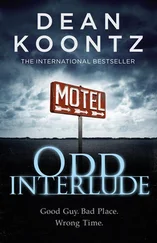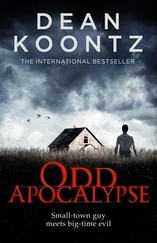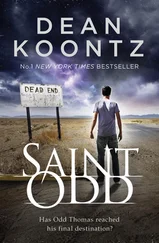1 ...6 7 8 10 11 12 ...64 On this December night, I was warmed by being in the company of a man like Brother John, whose compassion matched his genius. To be honest, the cookie contributed significantly to my improved mood.
A new abbey had been built, as well. Included were a series of subterranean rooms constructed and equipped to meet Brother John's specifications.
No one called this underground complex a laboratory. As far as I could discern, it wasn't in fact a lab, but something unique of which only his genius could have conceived, its full purpose a mystery.
The brothers, few of whom ever came here, called these quarters John's Mew. Mew, in this case, is a medieval word meaning a place of concealment. A hideout.
Also, a mew is a cage in which hunting hawks are kept while they are molting. Mew also means "to molt."
I once heard a monk refer to Brother John "down there growing all new feathers in the mew."
Another had called these basement quarters a cocoon and wondered when the revelation of the butterfly would occur.
Such comments suggested that Brother John might become someone other than who he is, someone greater.
Because I was a guest and not a monk, I could not tease more out of the brothers. They were protective of him and of his privacy.
I was aware of Brother John's true identity only because he revealed it to me. He did not swear me to secrecy. He had said instead, "I know you won't sell me out, Odd Thomas. Your discretion and your loyalty are figured in the drift of stars."
Although I had no idea what he meant by that, I didn't press him for an explanation. He said many things I didn't fully understand, and I didn't want our relationship to become a verbal sonata to which a rhythmic Huh? Huh? Huh? was my only contribution.
I had not told him my secret. I don't know why. Maybe I would just prefer that certain people I admire do not have any reason to think of me as a freak.
The brothers regarded him with respect bordering on awe. I also sensed in them a trace of fear. I might have been mistaken.
I didn't regard him as fearsome. I sensed no threat in him. Sometimes, however, I saw that he himself was afraid of something.
Abbot Bernard does not call this place John's Mew, as do the other monks. He refers to it as the adytum.
Adytum is another medieval word that means "the most sacred part of a place of worship, forbidden to the public, the innermost shrine of shrines."
The abbot is a good-humored man, but he never speaks the word adytum with a smile. The three syllables cross his lips always in a murmur or a whisper, solemnly, and in his eyes are yearning and wonder and perhaps dread.
As to why Brother John traded success and the secular world for poverty and the monastery, he had only said that his studies of the structure of reality, as revealed through that branch of physics known as quantum mechanics, had led him to revelations that humbled him. "Humbled and spooked me," he said.
Now, as I finished the chocolate-chip cookie, he said, "What brings you here at this hour, during the Greater Silence?"
"I know you're awake much of the night."
"I sleep less and less, can't turn my mind off."
A periodic insomniac myself, I said, "Some nights, it seems my brain is someone else's TV, and they won't stop channel surfing."
"And when I do nod off," said Brother John, "it's often at inconvenient times. In any day, I'm likely to miss one or two periods of the Divine Office-sometimes Matins and Lauds, sometimes Sext, or Compline. I've even missed the Mass, napping in this chair. The abbot is understanding. The prior is too lenient with me, grants absolution easily and with too little penance."
"They have a lot of respect for you, sir."
"It's like sitting on a beach."
"What is?" I asked, smoothly avoiding Huh?
"Here, in the quiet hours after midnight. Like sitting on a beach. The night rolls and breaks and tosses up our losses like bits of wreckage, all that's left of one ship or another."
I said, "I suppose that's true," because in fact I thought I understood his mood if not his full meaning.
"We ceaselessly examine the bits of wreckage in the surf, as though we can put the past together again, but that's just torturing ourselves."
That sentiment had teeth. I, too, had felt its bite. "Brother John, I've got an odd question."
"Of course you do," he said, either commenting on the arcane nature of my curiosity or on my name.
"Sir, this may seem to be an ignorant question, but I have good reason to ask it. Is there a remote possibility that your work here might… blow up or something?"
He bowed his head, raised one hand from the arm of his chair, and stroked his chin, apparently pondering my question.
Although I was grateful to him for giving me a well-considered answer, I would have been happier if he had without hesitation said, Nope, no chance, impossible, absurd.
Brother John was part of a long tradition of monk and priest scientists. The Church had created the concept of the university and had established the first of them in the twelfth century. Roger Bacon, a Franciscan monk, was arguably the greatest mathematician of the thirteenth century. Bishop Robert Grosseteste was the first man to write down the necessary steps for performing a scientific experiment. Jesuits had built the first reflecting telescopes, microscopes, barometers, were first to calculate the constant of gravity, the first to measure the height of the mountains on the moon, the first to develop an accurate method of calculating a planet's orbit, the first to devise and publish a coherent description of atomic theory.
As far as I knew, over the centuries, not one of those guys had accidentally blown up a monastery
Of course, I don't know everything. Considering the infinite amount of knowledge that one could acquire in a virtually innumerable array of intellectual disciplines, it's probably more accurate to say that I don't know anything.
Maybe monk scientists have occasionally blown a monastery to bits. I am pretty sure, however, they never did it intentionally.
I could not imagine Brother John, philanthropist and cookie-maker, in a weirdly lighted laboratory, cackling a mad-scientist cackle and scheming to destroy the world. Although brilliant, he was human, so I could easily see him looking up in alarm from an experiment and saying Whoops, just before unintentionally reducing the abbey to a puddle of nano-goo.
"Something," he finally said. Sir?
He raised his head to look at me directly again. "Yes, perhaps something."
"Something, sir?"
"Yes. You asked whether there was a possibility that my work here might blow up or something. I can't see a way it could blow up. I mean, not the work itself."
"Oh. But something else could happen."
"Maybe yes, probably no. Something."
"But maybe yes. Like what?"
"Whatever."
"What whatever?" I asked.
"Whatever can be imagined."
"Sir?"
"Have another cookie."
"Sir, anything can be imagined."
"Yes. That's right. Imagination knows no limits."
"So anything might go wrong?"
"Might isn't will. Any terrible, disastrous thing might happen, but probably nothing will."
"Probably?"
"Probability is an important factor, Odd Thomas. A blood vessel might burst in your brain, killing you an instant from now."
At once I regretted not having taken a second cookie.
He smiled. He looked at his watch. He looked at me. He shrugged. "See? The probability was low."
"The anything that might happen," I said, "supposing that it did happen, could it result in a lot of people dying horribly?"
"Horribly?"
"Yes, sir. Horribly."
"That's a subjective judgment. Horrible to one person might not be the same as horrible to another."
"Shattering bones, bursting hearts, exploding heads, burning flesh, blood, pain, screaming-that kind of horrible."
Читать дальше
Конец ознакомительного отрывка
Купить книгу
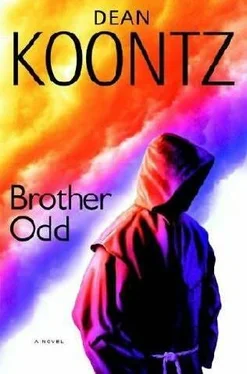
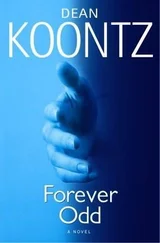
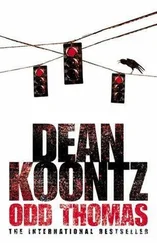
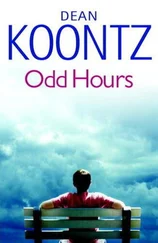



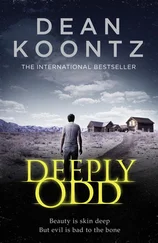
![Dean Koontz - You Are Destined To Be Together Forever [an Odd Thomas short story]](/books/705298/dean-koontz-you-are-destined-to-be-together-foreve-thumb.webp)

